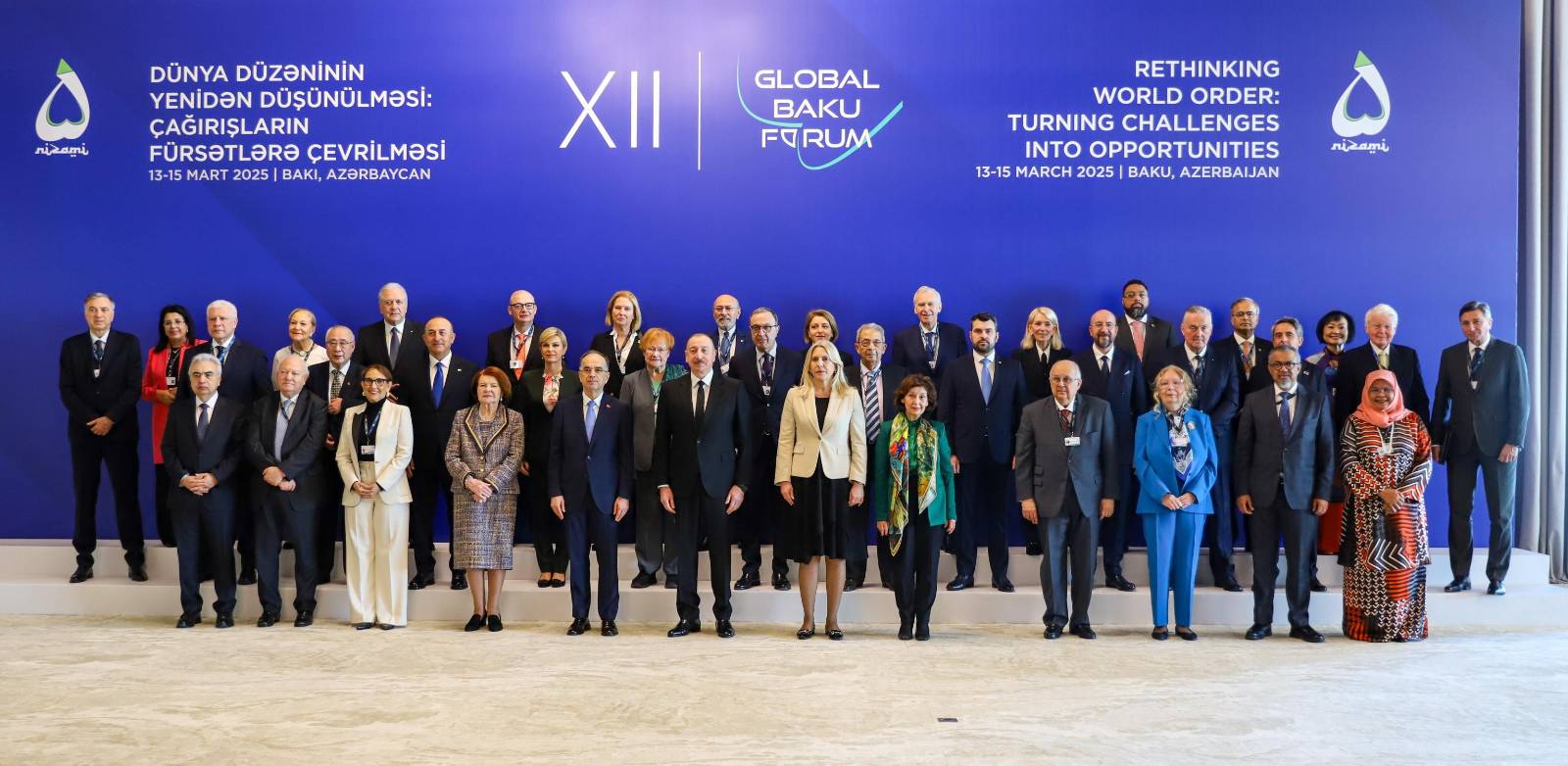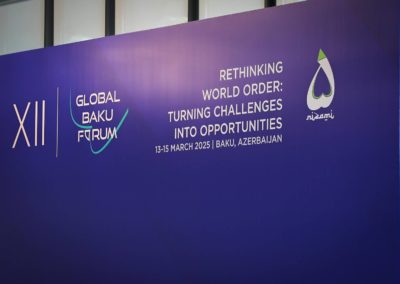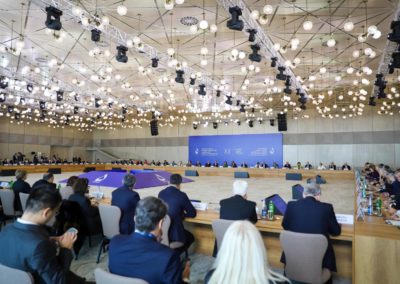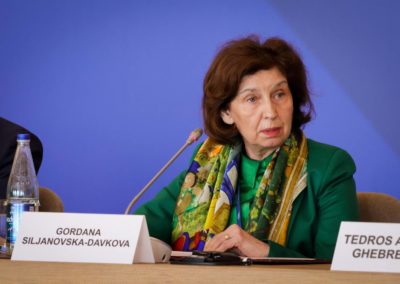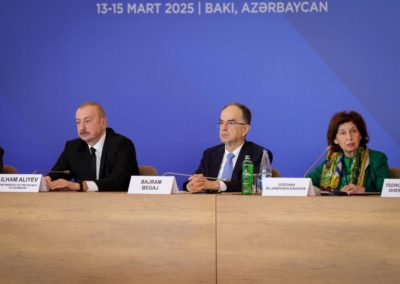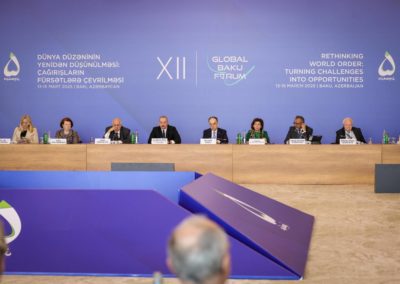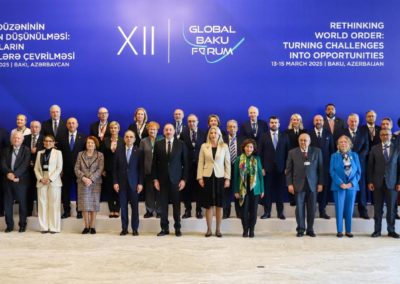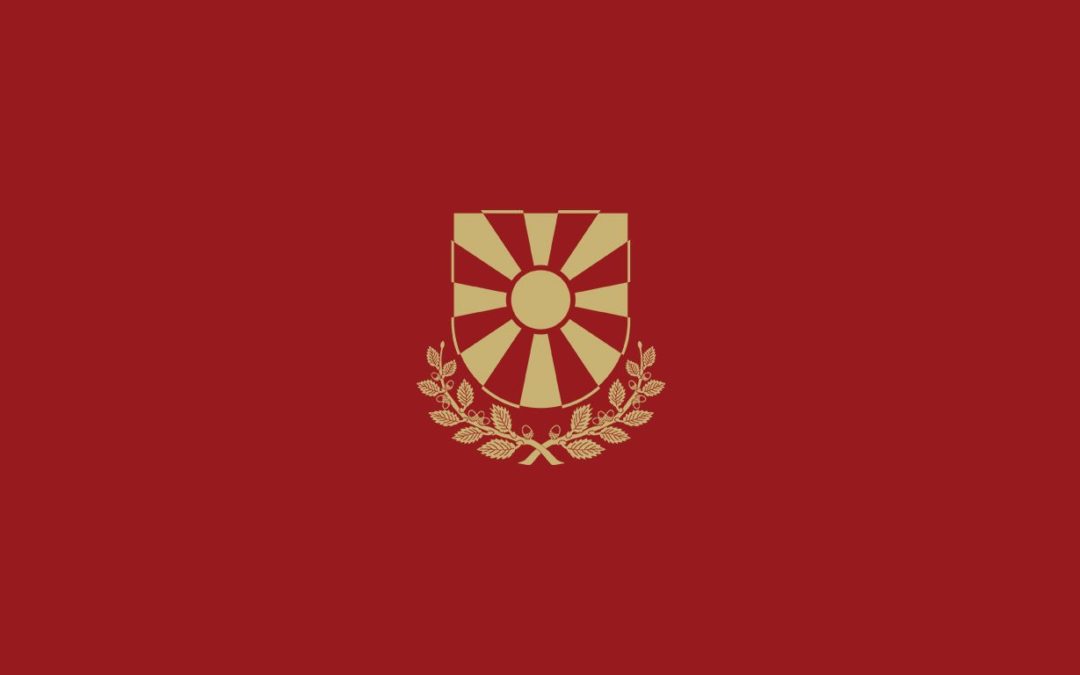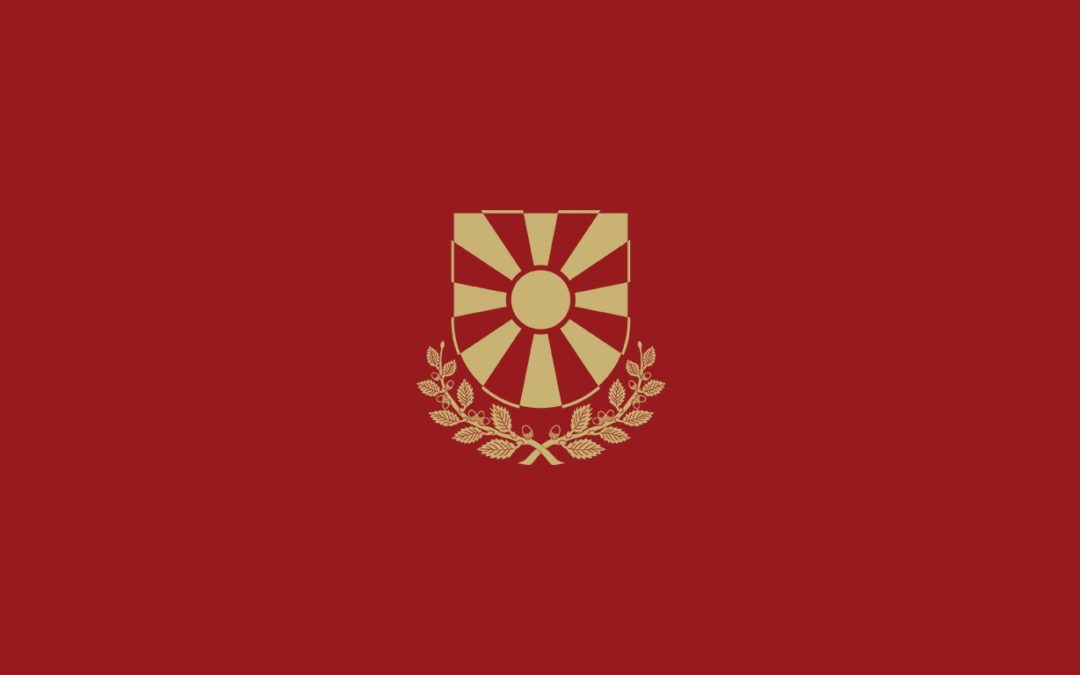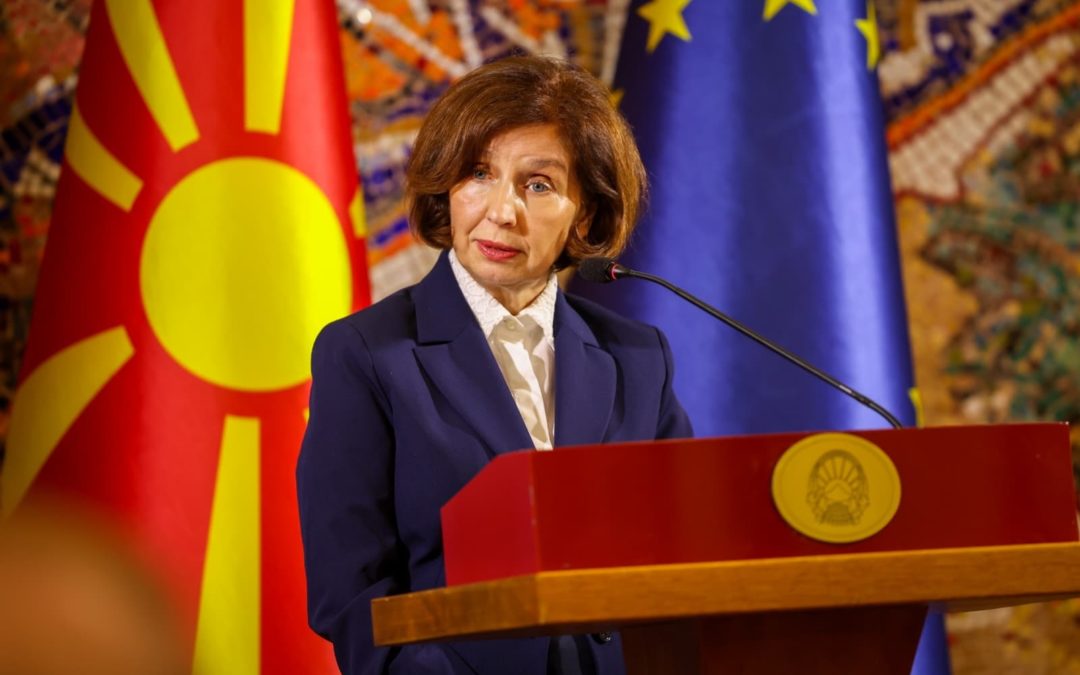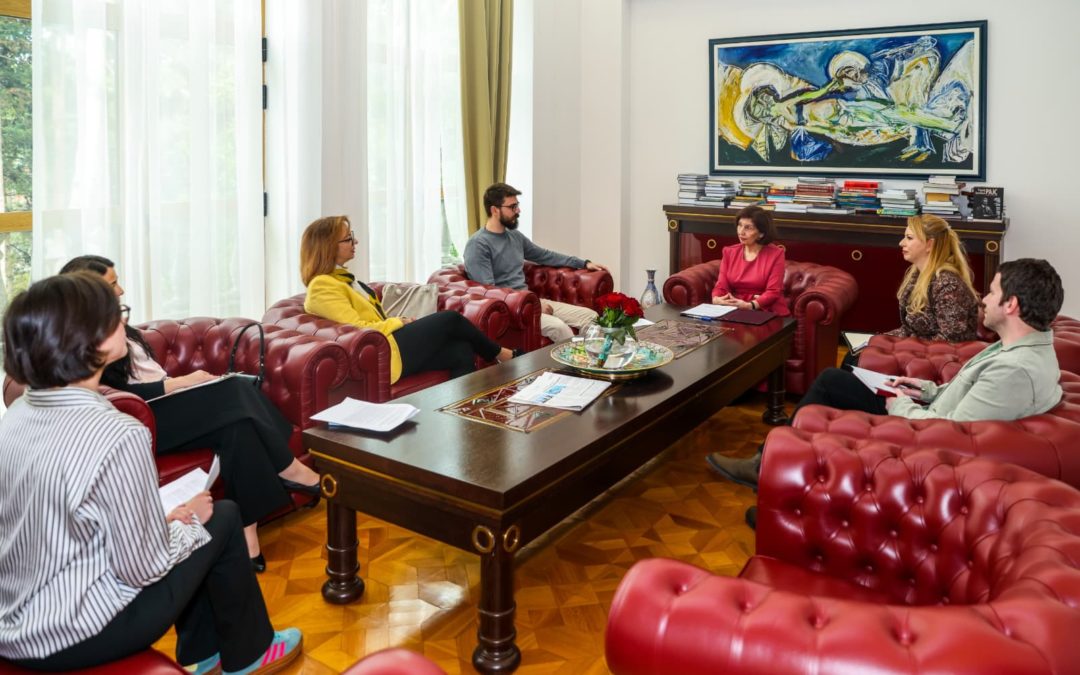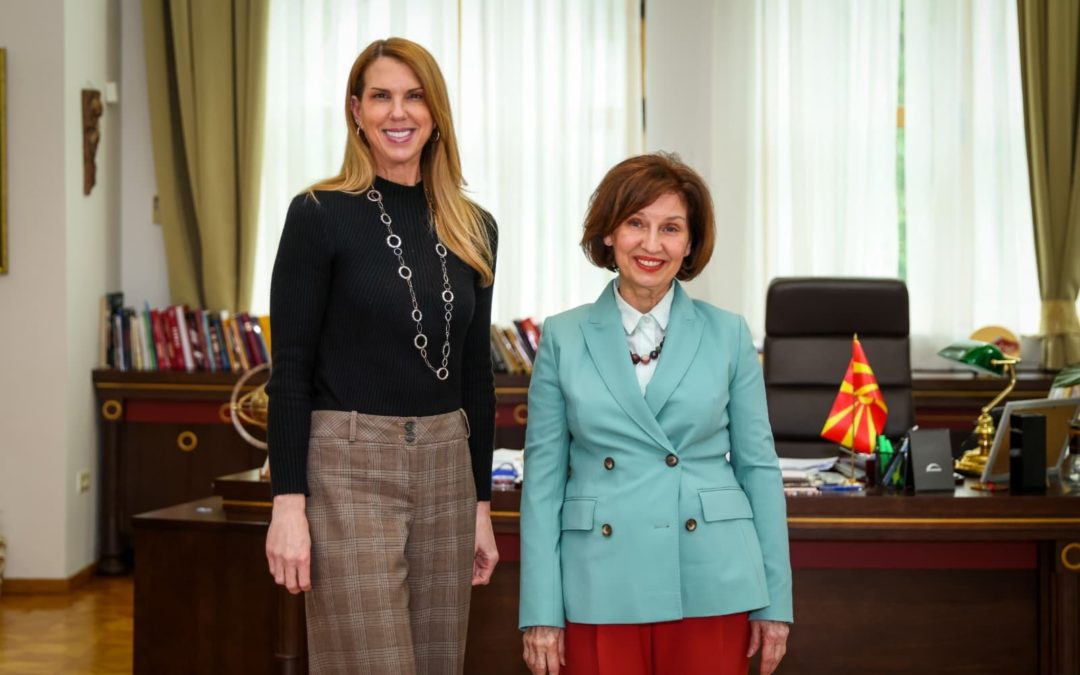President Gordana Siljanovska-Davkova addressed today the opening ceremony of the XII Global Baku Forum, which is held from 14 to 15 March in Baku, Republic of Azerbaijan, organized by the Nizami Ganjavi International Center.
She assessed that the Global Baku Forum has grown into one of the most important international platforms in recent years, addressing the most important regional and global issues.
“Multilateralism is giving way to multipolarization. Growing geopolitical rivalry is weakening the system of collective security. The United Nations is being marginalized when we need it most. The post-World War II consensus is being called into question. It is as if we are living at the dawn of a new era in which the rules-based international system is being undermined”, said President Siljanovska-Davkova at the opening of the Forum.
In the context of the current geopolitical turmoil, the President pointed out that day by day we have more questions and less answers, and the world is becoming a very different place.
She expressed confidence that the Global Forum in Baku can offer fresh perspectives on how to continue working towards achieving and preserving peace, as a paramount common interest.
The keynote address at the opening ceremony of the event was given by the President of the Republic of Azerbaijan, Ilham Aliyev, and the ley speakers included the President of the Republic of Albania, Bajram Begaj, and the Chairman of the Presidency of Bosnia and Herzegovina, Zeljka Cvijanovic.
Distinguished President Aliyev,
Esteemed Excellencies,
Ladies and Gentlemen,
I avail myself of this opportunity to express my gratitude to our wonderful hosts of the Nizami Ganjavi International Center for their invitation to participate in this XII Global Baku Forum in Azerbaijan.
Despite the geographical distance, our two friendly countries are bound by deeply rooted ties. These two countries are civilizational crossroads, with a long history of multi-ethnic and multi-religious coexistence. Both regained independence in 1991 and are committed to multilateralism and cooperation within the framework of the UN. However, there is yet another thing that connects them. Azerbaijan is the land of fire. I, on the other hand, come from the land of the sun. And the sun, as one of our Macedonian poets said, “is the oldest fire one can get warm of”. I have experienced this warmth in the past few days, during my official visit to the friendly Republic of Azerbaijan. Thank you, President Aliyev, for your warm hospitality.
Azerbaijani hospitality is also gaining an international dimension through the Global Baku Forum, which has grown into one of the most significant international platforms in recent years. Drawing on the experience and wisdom of several generations of leaders, the Global Baku Forum addresses the most important regional and global issues.
Esteemed Excellencies,
This is especially important in the year of 2025, which some expect to be a turning point. Day by day, more and more questions arise and there are less and less answers thereto. The world is becoming a very different place. Multilateralism is giving way to multi-polarization. The growing geopolitical rivalry is weakening the system of collective security. The United Nations turns marginalized when we need it most. The European Union, which indeed is a peace project, is re-arming. The post-World War II consensus is being called into question. How can we live at the dawn of a new era in which the rules-based international system is being undermined?
Not long ago, the German President Steinmeier declared at the Munich Security Conference that “the absence of rules must not become the guiding principle of the new world order” because that would mean abandoning our most important civilizational achievement, set out 80 years ago in the Charter of the United Nations.
The question is not whether we will have rules or not, but what kind of rules will there be and what they will be based on? Whether on the principle of pacta sunt servanda or on the principle of power? Is there a clash of values and realities in addition to the clash of interests? Can we resolve the greatest crises and challenges of our time without shared rules? What kind of world will we leave to our young and future generations?
These are just some of the questions we will be considering at this year’s Global Baku Forum. I am honored to share my insights with you at the third panel dedicated to the United Nations Pact for the Future.
Dear Friends,
Eighty years ago, the Nobel Peace Prize was awarded to former United States Secretary of State Cordell Hull for his role in founding the United Nations. In his address, he recalled that the key issue for people and nations is “whether they have suffered enough and learned enough to cast aside suspicion, prejudice, short-term and narrow interests and unite in the advancement of their greatest common interest. That vast and overshadowing common interest is a lasting peace within which the newly discovered powers of man’s science and technology can be harnessed to improve the well-being of mankind to unprecedented heights.”
I believe that the Global Baku Forum can offer us fresh perspectives on how to continue working towards achieving and preserving that supreme common interest.
Thank you.
